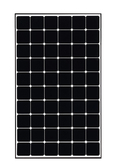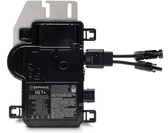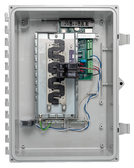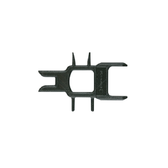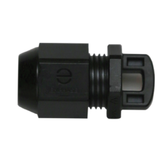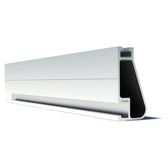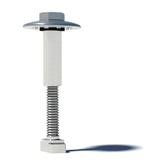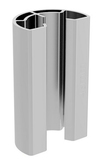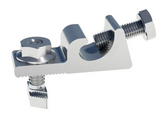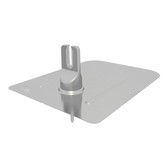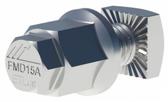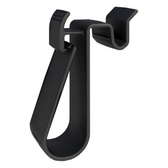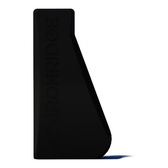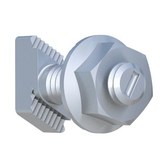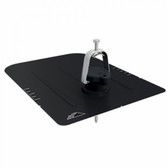 Loading... Please wait...
Loading... Please wait...- Home
- Solaris Blog
- LG Solar Panels: The Complete Review
Products
- Solar Panels
- Solar Panel Kits
- Solar Generators
- Inverters
- Inverter Monitoring
- Inverter Accessories
- Balance of Systems
- Racking and Mounting
- Rails
- Flashings
- Splice Kits
- Stopper Sleeves
- Conduit Mounts
- Attachments
- Brace Assembly
- Base Mount
- Brackets
- Bolts
- Clamps
- Caps
- L-Feet
- Washers
- Skirt
- Lugs
- Tilt Legs
- Hooks
- Stand-Offs
- Ballast Bay
- Top of Pole Mount
- Side of Pole Mount
- Flush Mount Kits
- Ground Mount Kits
- Roof Mount Kits
- Hardware Packages
- Wire Management
- Batteries
- Battery Accessories
- Charge Controllers
- Tools and Supplies
- View All Products
LG Solar Panels: The Complete Review
Posted by Brandi Casey on 4th Sep 2019

LG Solar is one of the leading manufacturers of precision created solar panels - which boast some of the highest efficiency ratings on the market. In addition, home and business owners benefit from LG’s impressive technology and electronics background. A pioneer in the solar industry, LG offers 25-year product and performance warranties, is among the best in the industry. They have positioned themselves to be a great option for solar system owners who want to plan well into the future for their solar energy system, having the security from a brand name they can trust.
LG Solar panel’s high efficiency ratings not only set themselves apart from some of their competitors (3-5% more rated efficiency on average) but ensure that you will get more usable energy out of your system by year 25 of your warranty period. LG guarantees 87% of nameplate output power of the solar module, which is again, among the best in the industry.
LG solar panels are often regarded as having some of the finest tier-1 modules in the solar marketplace. The cost of LG’s solar panels reflects their status as a premium module, along with Panasonic and Solaria. The panels are well designed and able to withstand turbulent environmental conditions while also being aesthetically pleasing.
In this complete review of LG solar panels, we will be looking at the following:
- Specifications and Pricing
- Average Cost per Watt Comparison
- Module and Cell Technology
- Warranty Period
- LG Solar System Potential ROI
- And Solaris Recommendations
See Here: LG Solar Panels for Sale
Specifications and Pricing
LG Solar offers the high-efficiency NeON series, which includes the NeON 2, NeON R and NeON Bifacial modules. Due in part to their large manufacturing capabilities, LG is able to meet market demand on the majority of their modules throughout the entire year. Their 60-cell design is highly versatile and sought after. Installers benefit from the smaller square footage combined with high wattage, meaning you can utilize less panels while maximizing efficiency.
Both roof-top and ground mount systems benefit from the modules strong structural designs, which make the solar panels reliable and durable in adverse weather conditions. Although LG is a higher cost per module, there is potential for savings with these premium high watt modules, which will decrease the bill of materials needed for the project.
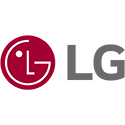
|
LG350Q1C-A5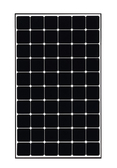 |
LG360Q1C-A5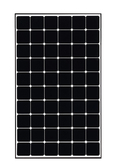 |
LG365Q1C-V5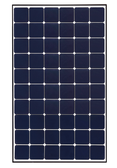 |
LG315N1K-V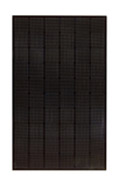 |
LG330N1C-A5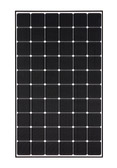 |
LG340N1C-V5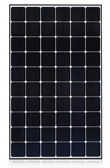 |
| Watts: | 350 | 360 | 365 | 315 | 330 | 340 |
| Series: | NeON R | NeON R | NeON R | NeON 2 | NeON 2 | NeON 2 |
| Pricing: |
See Price Here |
See Price Here |
See Price Here |
See Price Here |
See Price Here |
See Price Here |
| Efficiency: | 20.30% | 20.80% | 21.10% | 18.40% | 19.30% | 19.80% |
| Dimensions: | 66.93 x 40.00 x 1.57 Inches | 66.93 x 40.00 x 1.57 Inches | 66.93 x 40.00 x 1.57 Inches | 66.38 x 40.00 x 1.57 Inches | 66.38 x 40.00 x 1.57 Inches | 66.38 x 40.00 x 1.57 Inches |
| Weight: | 40.79 lbs | 40.79 lbs | 38.58 lbs | 39.68 lbs | 39.68 lbs | 39.70 lbs |
| Cells: | 60x N-Type | 60x N-Type | 60x N-Type | 60x N-Type | 60x N-Type | 60x N-Type |
| Isc: | 8.67 Amps | 10.79 Amps | 10.80 Amps | 10.15 Amps | 10.45 Amps | 10.53 Amps |
| Voc: | 40.10 Volts | 42.70 Volts | 42.80 Volts | 40.70 Volts | 40.90 Volts | 41.10 Volts |
| Imp: | 7.32 Amps | 9.87 Amps | 9.95 Amps | 9.58 Amps | 9.80 Amps | 9.86 Amps |
| Vmp: | 36.00 Volts | 36.50 Volts | 36.70 Volts | 32.90 Volts | 33.70 Volts | 34.50 Volts |
| Docs: |
Specs Warranty |
Specs Warranty |
Specs Warranty |
Specs Warranty |
Specs Warranty |
Specs Warranty |
Average Cost per Watt Comparison
On average, LG's solar panels start at $0.97/watt and costs about $0.09/watt above standard mid-range panels such as Canadian Solar. The efficiency rating of LG above their mid range competitors is a little over 1% higher though. Ultimately, you are unlikely to see much a difference in day to day and month to month energy output. However, over the lifetime of the solar panels, you will experience the benefit from the additional efficiency as well as LG's better than average degradation rate loss.
Solaris Tip: On average, solar panel manufacturers guarantee 82% of the nameplate output at the 25 year bench mark. Be sure to calculate this when determining the size of your system so your system will meet your energy output needs in the future.
| Manufacturer | Average Cost | Average Efficiency | Warranty |
| LG Solar | $0.97/watt | 19.95% |
25-yr Product | 25-yr Performance |
| Panasonic | $0.95/watt | 19.99% | 25-yr Product | 25-yr Performance |
| Canadian Solar | $0.68/watt | 18.73% | 10-yr Product | 25-yr Performance |
| Mission Solar | $0.68/watt | 18.65% | 10-yr Product | 25-yr Performance |
Module and Cell Technology
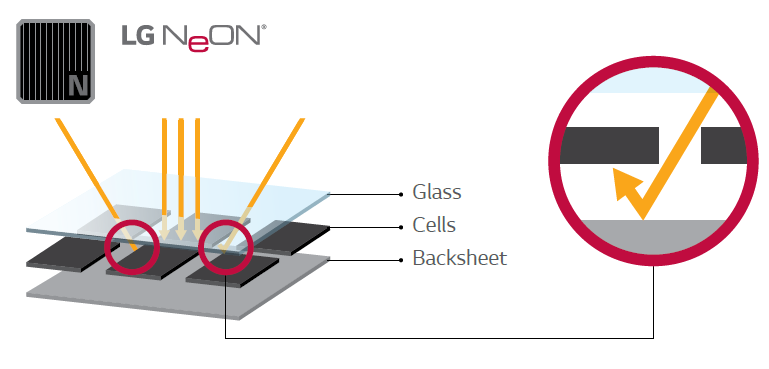
One of the driving technologies behind LG's solar panel is their N-type cell technology. The N-type cells convert sunlight into energy more efficiency than P-type solar cells - which results in higher module efficiency ratings. The back sheet of the panel also bounces un-captured energy back into the solar cell to generate additional energy conversion.
LG's focus on innovation and high-quality products that are tested and approved under real world conditions, such as low irradiance and high temperatures. This ensures the modules remain robust and efficient no matter what the weather is outside. In combination with low annual degradation rates and longer than average warranty periods - LG's premium solar panels deliver on quality and reliability.
LG Solar was awarded Intersolar Award in 2013, 2015 and 2016 for the NeON R's growing power output of approximately 7.5% annually. The NeON series even outpaced their popular LG Mono X series, as well as a number of competing solar modules.
Warranty Period
LG Solar has one of the leading warranty periods in the market alongside it's rival Panasonic. In addition, their 87% output at the 25-year benchmark puts them 5% above the industry average. This percentage is less than Panasonic, which promises a 90.76% output. The difference is likely due to the number of cells typical for the respective manufacturers solar panels. Panasonic modules are 96 cells while the mainstream NeON series from LG Solar is 60 cells. There are benefits to both cell configurations, the decision between the two ultimately comes down to your individual project, desired inverter solution, and manufacturer preference.
Compare: LG Solar vs Panasonic Modules: What's Best?
In comparison to mid-range panels, such as Canadian Solar (80.7%), LG Solar has a 6.3% greater efficiency at the end of the panels warranty period. This difference should figure into your calculations for the long-term return on investment of the solar modules. There are benefits to both standard and premium solar panels, which solution works best for you comes down to your project conditions as well as budget.
See Here: LG Solar Panel Warranty
LG Solar System and Potential ROI
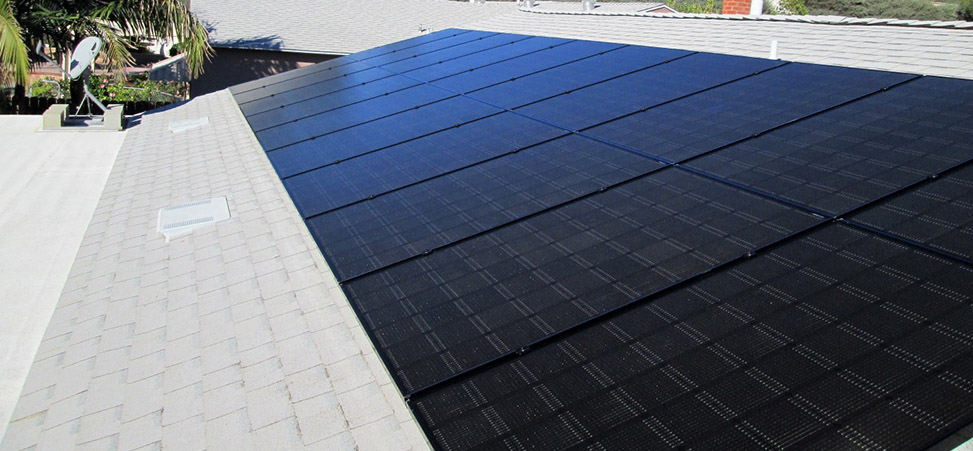
*LG Solar Panel Roof Top System
In order to gain a better understanding of your potential ROI for LG Solar panels is to take a look at a 8.64kW grid-tied, roof mount system we designed as an example array.
This system includes: LG Solar 360w NeON R solar panels, Enphase IQ7PLUS microinverters (along with monitoring and accessories), and complete IronRidge racking materials utilizing a 2x12 configuration as noted below.
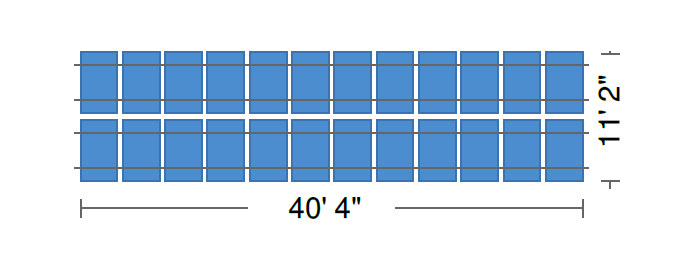
LG 8.64kW Grid-Tied Roof-Mount System
*Prices reflective of current pricing as of the posting of this article. Click on the item image to check current pricing. Does not include potential taxes and fees which may apply. Prospective system owners will also need a permit plan.
The above system averages to $16,752.24 before possible state level fees and solar energy tax rebates and incentives. This figure brings the system to $1.94/watt for the major components of the system. This is approximately $0.58/watt more than Hanwha Q Cells and $0.51/watt more than Canadian Solar.
The system should be producing 13,000kWh annually and approximately 1,083kWh per month. By taking the average cost of per kilowatt hour in the United States ($0.12/kWh) and multiplying it by the estimated monthly usage, we can determine how much money the system will save per month.
Assuming the system produces 1,083kWh/month, users can expect $129.96 in energy savings monthly. In order for the system to pay for itself (excluding rebates and incentives, and possible costs of installation) will take approximately 128.9 months, or a 10.74 year ROI period.
See Here: How to Size Your Solar System
Solaris Recommendations
LG Solar is an excellent solution for any residential or commercial solar system owner. Their high efficiency, extensive warranty, sleek design, brand quality, and impressively low degradation rate ensures that you will be getting the most out of your system now and in the future.
The ROI period on LG's is extended by an average of 3 years above standard, mid-range competitors. However, these premium solar panels still come in under a 15 year ROI period, which is still good for DIY installations. LG solar panels are on par with Panasonic - due to the 96 cell configuration of the modules, the more costly IQ7X microinverters would need to be used for Panasonic solar panels.
Initial start up capital may be a concern when thinking about using LG Solar panels, prospective system owners can benefit from LG's long track record and consistent product lines to plan out systems in stages. This means that the module lines they produce will likely be available for a longer period of time, allowing owners to add to the system as budget allows until you reach your full energy potential.
For homeowners interested in battery backup, LG also caries the LG Chem RESU battery, which pairs well with their panels and SolarEdge inverters. Selecting a string inverter system may also assist in driving down the cost of the energy system as well. Despite their higher cost, LG Solar panels can be made available to even the most budget conscious installer.
Read Here: LG Chem RESU Battery: Complete Review


